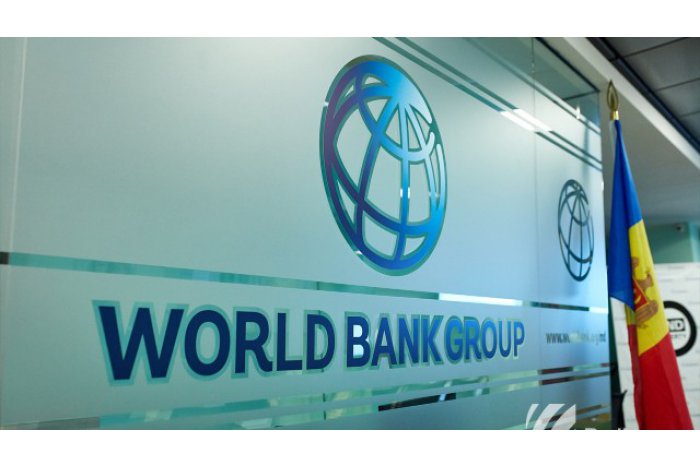World Bank maintains forecasts for growth of Moldovan economy, risks on rise
12:41 | 29.11.2019 Category: Economic
Chisinau, 29 November /MOLDPRES/- The World Bank maintains its forecasts for the growth of the Moldovan economy by 3.6 percent in 2020 and 3.8 percent in 2021, previously released, but the risks are increasing, according to the economic update, published on November 28 by the World Bank in Moldova. The forecast implies "continuous progress in relation to the reform agenda, including the alleviation of fiscal pressures".
"Moldova needs sustainable growth to create jobs and eliminate poverty for as many people as possible," said Anna Akhalkatsi, country manager of the World Bank for Moldova. "Given Moldova's increased dependence on EU countries for trade and remittances, however, further economic slowdown in the EU may affect Moldova's exports, and continued political uncertainty may undermine positive macroeconomic outlook and fiscal sustainability."
The experts of the international financial institution consider that prudent fiscal and financial policies are needed to protect macroeconomic sustainability and "immediate efforts are needed to increase reduced productivity and improve judicial reform".”In terms of lower remittances and weaker external demand, the economic growth will remain moderate and below historical values,” WB expert Marcel Chistruga said. In his opinion, the forecast implies the continuation of the agenda of reforms, private consumption and robust investments, as the financial conditions stabilize, the confidence of the private sector is strengthened, and the social benefits and wages in the public sector continue to increase. While exports will increase slowly after 2020, in tandem with the increase in external demand, the current account deficit will be below historical values. ”
In the opinion of the WB experts, the non-commercial sectors (for example, trade, ICT) and industry will be the most dynamic, while the contribution of agriculture is estimated to be marginal. Despite a positive macroeconomic forecast, there are considerable risks to sustainable growth in Moldova, which could stem from economic slowdown in the EU and consequently slowing exports, and continued political instability may undermine positive macroeconomic outlook and fiscal sustainability.
As there is little opportunity for revenue growth, the financing of the deficit is very much based on external financing. Financing needs are rising, and the fiscal position may deteriorate due to structural fiscal inefficiencies and increasing burden, caused by wages and social transfers. Risks to sustainability also appear in other areas, including the pension fund, as well as contingent liabilities of state-owned enterprises and the financial sector, the World Bank estimates.
In order to strengthen the potential growth, Moldova must increase its productivity. State-owned enterprises are ubiquitous, even if they are less productive per employee and have a declining productivity. Eliminating price controls and de-monopolizing the economy, as well as strengthening competition, would help free up resources for increased productivity, World Bank experts said.
Moldova registered an economic advance of 5.8 percent, on a gross basis, in the second quarter of 2019 compared to the same period of the previous year, exceeding the expectations of analysts and officials, who bet on a growth of 3.4-4.4 per cent of gross domestic product. The official statistics also show that in the first semester there was an increase of 5.2 percent, as a result Gross Domestic Product rose to about 90.9 billion lei.
The Ministry of Economy and the International Monetary Fund forecast a growth of 3.8 percent in 2019-2021. According to the optimistic scenario of the Expert-Grup centre, in 2019 and 2020 the GDP of the Republic of Moldova will increase by 4.4-4.5 percent, mainly due to industry and trade.

